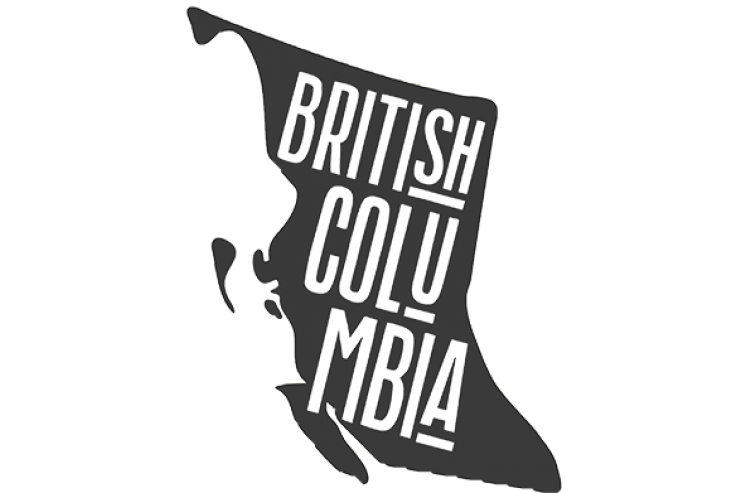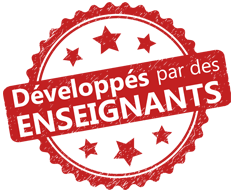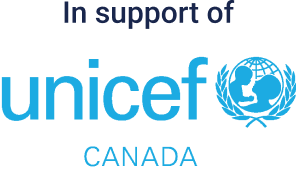British Columbia Grade 8

Made by a Grade 8 teacher in British Columbia.
Kids Boost Immunity (KBI) provides educational content (lessons and support materials) developed by teachers and where needed, health experts, that is directly linked to curriculum and is available completely for free. Each lesson is paired with an online quiz that students can take on a laptop, tablet, or phone. Every time a student scores 80% or higher on a quiz, we donate life-saving vaccines to UNICEF Canada. To learn more about KBI, click here.
Click on the overarching curriculum themes below to see the curriculum outcomes that match KBI educational content. The full Grade 8 British Columbia Curriculum Connections document is here.
- Physical and Health Education
-
Curricular outcomes:
Physical and Health Education - Content
- Marketing and advertising tactics
- using famous people to endorse products
- false and/or misleading health claims (e.g., weight-loss or muscle-gaining supplements)
- colourful and/or distracting advertising to get the attention of youth
- Sources of health information
- medical professionals
- websites
- magazine and TV advertisements
- retail stores (e.g., vitamin/supplement stores)
- Strategies to protect themselves and others
Physical and Health Education - Curricular Competency
- Healthy and active living
- Identify factors that influence health messages from a variety of sources, and analyze their influence on behaviour
- Social and community health
- Propose strategies for avoiding and/or responding to potentially unsafe, abusive, or exploitive situations
Applicable KBI lessons:
1. Critical Thinking & Evaluating Information
- Literacy builder worksheet/answer guide
- Lesson worksheet/answers
- Video worksheet/answers
- Inquiry activities/answer guides
- Numeracy activity/answers
2. Navigating the World of Online (Mis)Information
- Inquiry activities
- Marketing and advertising tactics
- Science
-
Curricular outcomes:
Science - Content
- Characteristics of life
- living things respire, grow, take in nutrients, produce waste, respond to stimuli, and reproduce
- there is debate as to whether or not to classify viruses as living things
- Types of cells
- prokaryotic and eukaryotic cells
- plant and animal cells
- cells contain structures that carry out essential functions
- The relationship of micro-organisms
- micro-organisms are key to nutrient recycling in ecosystems as they act as decomposers
- viruses and bacteria can cause disease and can also be used in industry (e.g., production of cheese and salami) and agriculture (e.g., production of striped tulips)
- Basic functions of the immune system
- the immune system provides a barrier to infections and a number of non-specific and specific responses to fight infection (e.g., fever, antibodies, phagocytes, inflammation)
- different populations have greater immunity to certain infections than other populations (e.g., impact of smallpox epidemic on First Peoples)
- Vaccination and Antibiotics
- vaccination can prevent the spread of infectious disease
- antibiotics are effective only against living organisms, such as bacteria, and not against viruses
- overuse of antibiotics can lead to the development of antibiotic-resistant strains of bacteria (“superbugs”)
- impacts of epidemics (regional outbreaks e.g., smallpox, measles) and pandemics (global outbreaks e.g., Spanish flu, SARS) on human populations
Science - Big Ideas
- Life processes are performed at the cellular level.
Science - Curricular Competency
- Processing and analyzing data and information
- Apply First Peoples perspectives and knowledge, other ways of knowing, and local knowledge as sources of information
- Evaluating
- Reflect on their investigation methods, including the adequacy of controls on variables (dependent and independent) and the quality of the data collected
- Identify possible sources of error and suggest improvements to their investigation methods
- Demonstrate an awareness of assumptions and bias in their own work and secondary sources
- Demonstrate an understanding and appreciation of evidence (qualitative and quantitative)
- Exercise a healthy, informed skepticism and use scientific knowledge and findings from their own investigations to evaluate claims in secondary sources
- Consider social, ethical, and environmental implications of the findings from their own and others’ investigations
Applicable KBI lessons:
1. Diversity of Living Things
- Literacy builder worksheet/answer guide
- Lesson worksheet/answers
2. The Spread of Infectious Diseases
3. The Immune System & How Vaccines Help Prevent Diseases
- Literacy builder worksheet/answer guide
- Lesson worksheet/answers
- Video worksheet/answers
- Numeracy activity/answers
4. Antibiotics
- Characteristics of life
- English Language Arts (ELA)
-
Curricular outcomes:
ELA - Curricular Competency
- Comprehend and connect (reading, listening, viewing)
- Access information and ideas for diverse purposes and from a variety of sources and evaluate their relevance, accuracy, and reliability
- Recognize and appreciate how different features, forms, and genres of texts reflect different purposes, audiences, and messages
- Think critically, creatively, and reflectively to explore ideas within, between, and beyond texts
- Recognize and identify the role of personal, social, and cultural contexts, values, and perspectives in texts
- Construct meaningful personal connections between self, text, and world
- Respond to text in personal, creative, and critical ways
Applicable KBI lessons:
1. Critical Thinking & Evaluating Information
- Literacy builder worksheet/answer guide
- Lesson worksheet/answers
- Video Worksheet/answers
- Inquiry activities/answer guides
- Numeracy activity/answers
2. Navigating the World of Online (Mis)Information
- Inquiry activities
- Comprehend and connect (reading, listening, viewing)
Curriculum-Related Themes Throughout the Year
- First Peoples - Truth and Reconciliation
-
Curricular outcomes:
Core Competencies - Personal and Social
- Valuing Diversity
- Students value diversity, defend human rights, advocate for issues, and interact ethically with others. They are inclusive in their language and behaviour and recognize that everyone has something to contribute. Their approach to inclusive relationships exemplifies commitment to developing positive communities.
Applicable KBI lessons:
1. Indigenous History on Turtle Island
- Valuing Diversity
- Remembrance/Veterans/Memorial Day (November)
-
Curricular outcomes:
English Language Arts - Big Ideas
- Exploring stories and other texts helps us understand ourselves and make connections to others and to the world
- Exploring and sharing multiple perspectives extends our thinking.
English Language Arts - Curriculum Competency
- Comprehend and connect (reading, listening, viewing)
- Recognize and identify the role of personal, social, and cultural contexts, values, and perspectives in texts
- Recognize and appreciate the role of story, narrative, and oral tradition in expressing First Peoples perspectives, values, beliefs, and points of view
Physical and Health Education (PHE) - Big Ideas
- We experience many changes in our lives that influence how we see ourselves and others.
Applicable KBI lessons:
1. Remembrance Day / Veterans Day / Armistice Day
- Reflecting On Kindness (December)
-
Curricular outcomes:
Core Competency - Personal and Social
- Social Awareness and Responsibility
- People who are socially aware and responsible contribute to the well-being of their social and physical environments
Physical and Health Education - Big Ideas
- We experience many changes in our lives that influence how we see ourselves and others.
Applicable KBI lessons:
1. Christmas in No Man’s Land - Reflecting on Kindness
- Inquiry/creative activities
- Social Awareness and Responsibility
- Black History & Refugee Experiences (February)
-
Curricular outcomes:
English Language Arts - Big Ideas
- Exploring stories and other texts helps us understand ourselves and make connections to others and to the world
- Exploring and sharing multiple perspectives extends our thinking.
English Language Arts - Curriculum Competency
- Comprehend and connect (reading, listening, viewing)
- Think critically, creatively, and reflectively to explore ideas within, between, and beyond texts
- Recognize and identify the role of personal, social, and cultural contexts, values, and perspectives in texts
Physical and Health Education - Big Ideas
- We experience many changes in our lives that influence how we see ourselves and others
- Learning about similarities and differences in individuals and groups influences community health
PHE - Content
- Consequences of bullying, stereotyping, and discrimination
Core Competencies - Personal and Social
- Valuing Diversity
- Students value diversity, defend human rights, advocate for issues, and interact ethically with others. They are inclusive in their language and behaviour and recognize that everyone has something to contribute. Their approach to inclusive relationships exemplifies commitment to developing positive communities.
Applicable KBI lessons:
1. Black History Month
2. Refugee Experiences
- Lesson worksheet/answers
- Inquiry activities
- Celebrating Inspiring Women in STEM (March)
-
Curricular outcomes:
Core Competencies - Personal and Social
- Valuing Diversity
- Students value diversity, defend human rights, advocate for issues, and interact ethically with others. They are inclusive in their language and behaviour and recognize that everyone has something to contribute. Their approach to inclusive relationships exemplifies commitment to developing positive communities.
English Language Arts - Big Ideas
- Exploring stories and other texts helps us understand ourselves and make connections to others and to the world
- Exploring and sharing multiple perspectives extends our thinking.
English Language Arts - Curriculum Competency
- Comprehend and connect (reading, listening, viewing)
- Recognize and identify the role of personal, social, and cultural contexts, values, and perspectives in texts
Physical and Health Education - Content
- Consequences of bullying, stereotyping, and discrimination
Applicable KBI lessons:
1. International Women's Day - Celebrating Inspiring Women in STEM
- Literacy builder worksheets/answer guides
- Numeracy activity
- Inquiry activities
- Valuing Diversity
- Caring For The Environment (April)
-
Curricular outcomes:
Core Competencies - Social Awareness and Responsibility
- Contributing to the community and caring for the environment
- Students develop awareness of and take responsibility for their social, physical, and natural environments by working independently and collaboratively for the benefit of others, communities, and the environment. They are aware of the impact of their decisions, actions, and footprint. They advocate for and act to bring about positive change.
Applicable KBI lessons:
1. Environment & Climate Change
- Literacy builder worksheet/answer guide
- Lesson worksheet/answers
- Video worksheet/answers
- Inquiry activities/answer guides
- Numeracy activity/answers
- Contributing to the community and caring for the environment
- Learning About Infectious Diseases During Immunization Awareness Week (April)
-
Curricular outcomes:
Physical and Health Education - Content
- Practices that reduce the risk of contracting sexually transmitted infections and life-threatening communicable diseases
- Sources of health information
Applicable KBI lessons:
1. Immunization Awareness Week




